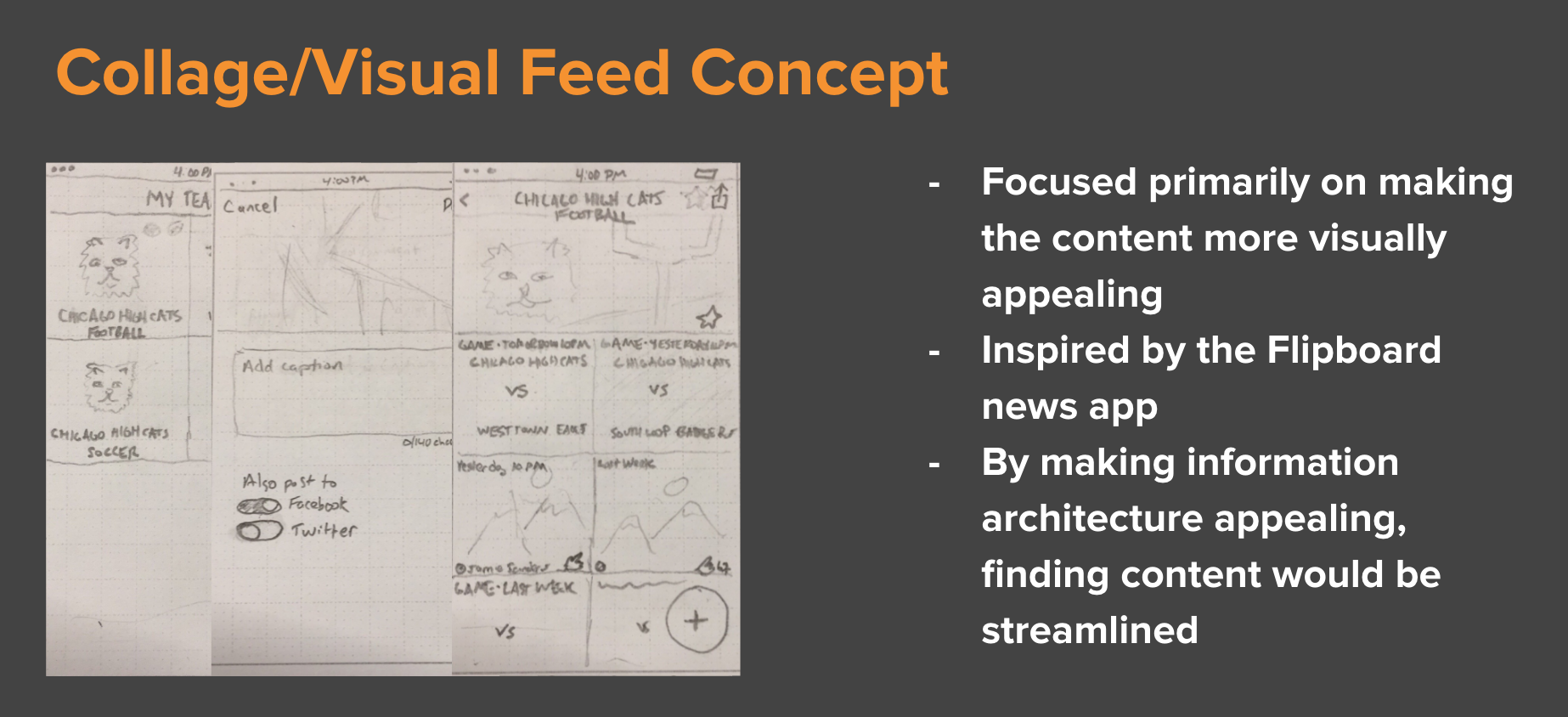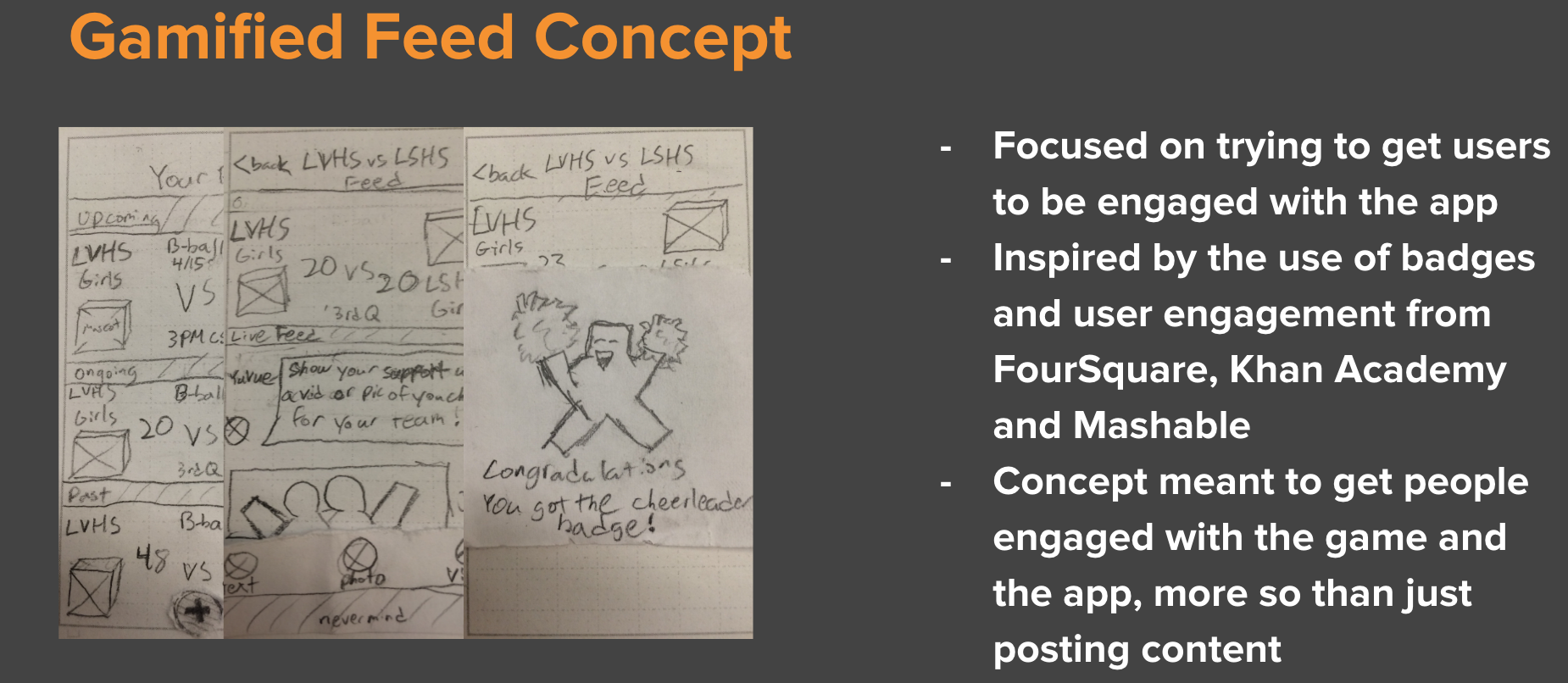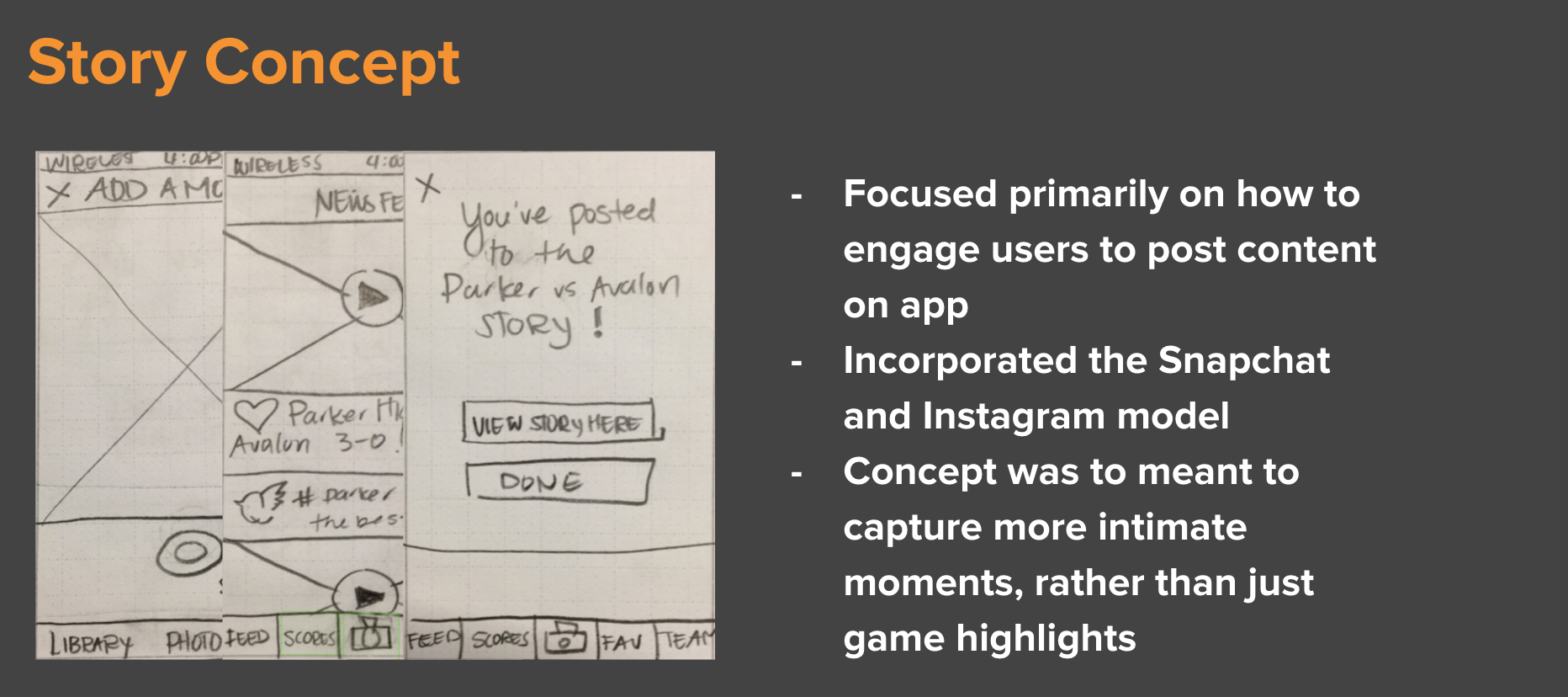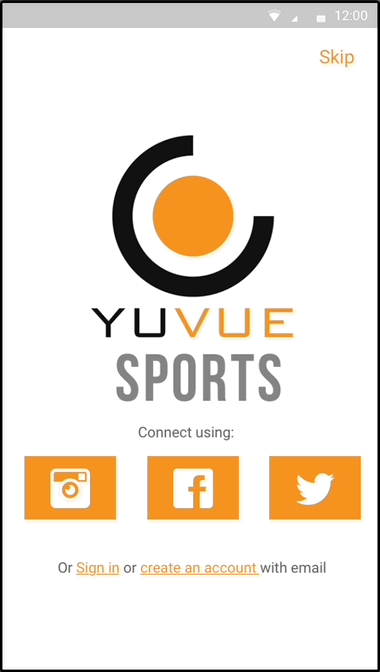Yuvue
A platform for the aggregation and management of
user-generated photo and video content.
The Brief
Yuvue is a startup that helps brands, broadcasters, and publishers discover, aggregate, and license videos and photos from across the social web. The startup a product called Yuvue Community that allows local news broadcasters to obtain and manage user-generated media from social networks.
The Challenge
Design the public-facing side of YuVue Community™, which will allow their customers to aggregate and manage user-generated photo and video content via web or app that could be white-labelled
Create a “general purpose” app for broadcasters that would also include news, weather, traffic, news, etc.
The Process
Using the Google Design Sprint, our team of three UX designers had two weeks to take on the challenge. With each sprint running four to five days, we performed a total of three design sprints:
Sprint 1 was focused on research and synthesis;
Sprint 2 on ideation and testing;
Sprint 3 on wireframing and prototyping.
Empathize and Defining The Problem
The Initial Plan
Our team started with domain research to understand the industry and performed a competitive analysis to gather data on the current offerings of user generated content and crowdsourced news platforms. The main research goals consisted of three points:
Subject Matter Experts (SME)
1. Understand the process of obtaining media to discover pain points and frustrations.
Users
2. Identify what motivates users to upload media to their social media platforms.
3. Understand users’ relationship with social media.
While conducting the competitive analysis, the team was indecisive on whether we should include all social media outlets or keep the focus on news platforms. Because of the lack of clarity in scope, we realized that the client’s initial requirements were too broad. As a result, it was difficult to target the audience to recruit for the interviews. To ensure the right target audience was chosen, we met with the client one more time to clarify the scope of the project.
Narrowing the Scope
Meeting with the client again, we discussed our concerns that the scope was too broad and needed to be narrowed down to deliver a quality product within the time constraints. We collaborated with the client to come to a shared understanding of how and why we would narrow the scope.
Our client recently partnered with Sportstream, a crowdsourced sports news app. We identified this partnership as a key opportunity to target the scope of the project. By focusing our scope to key problems in one category, we could then leverage our findings to solve problems for other types of categories like weather, politics, and traffic etc. Our new plan included:
5 User interviews
4 SME interviews
A competitive analysis
With our plan set and the limited time of the sprint, we proceeded to quickly recruit sports fans and SMEs for the interviews.
Synthesize
The interviews consisted of SMEs that worked in the local news stations and were responsible for social media accounts.We gathered the data and used affinity diagrams to create insights from the interviews.
SME Insights
User Insights
Defining the Problem
Who We're Designing For
Taking into account the insights from interviews, we created two personas to define the problem and streamline the design process.
Problem Statement
Sports fans need a centralized platform where they can create digital communities around local amateur sports that will enable them to easily share content, view details of a game and connect with team member and fellow fans.
Design Principles
BE PART OF A LOCAL COMMUNITY
Enable users to join and develop an active community of amateur local sport players, parents and fans.
FEEL LIKE YOU'RE AT A GAME, EVEN WHEN YOU AREN'T
Create an immersive “front row” experience that combines comments, updates, photos and videos.
ALL YOUR SPORTS CONTENT ALL IN ONE PLACE
Everything should be available to users in just a few steps, with the best of Twitter, Facebook, Score Stream, and even the local paper into one convenient app.
LEVERAGE SOCIAL NETWORKS
People aren’t going to quit Twitter or Facebook, so consider integrating with existing social networks and relying on their mental models as much as possible.
Ideation
Brainstorming and Sketching
Keeping the design principles in mind, our team sketched ideas using the crazy 8 method to discuss concepts and iterate. From the brainstorm, we created three main concepts:
A story based app, like Snapchat, that would allow fans to contribute to a team or game ‘story’
A visual, content-focused collage of teams you follow
A gamified feed that would encourage participation
Prototype
Each member of the team was responsible for creating a paper prototype and map a complete user flow to be used during the user testing. I created the story based app using POP, a prototype tool.
Concept Validation Testing
I took my prototype and ran five user tests where each participant was asked to perform the following tasks: a team, upload a picture, and find score for a game.
After the participants performed the tasks, I used the net promoter score (NPS) framework to gather feedback and a rating of how likely they would recommend the app to a friend (on a scale of 1-10). With an average score of 7.33, the story based had potential but there was room for improvement.
Insights from the story based app
Users thought the app overall was very intuitive
Most test subjects felt confused by the “moments” and “story” features
Going to the feed as the home page confused subjects
Out of the three concepts we tested, the collage app received the highest score of 8.67, which we used as the concept for the final design.
Refinement and Final Design
After the concept validation test, we incorporated the following changes from our user testing:
Simplifying the process of following a local sports team by taking out the step to follow a conference and just recommend teams to the user based off their choice
Content can only be uploaded to a specific game, this will make it easier for users to know where the media will be if they want to find it later on
Our team moved forward from low to mid fidelity wireframes.
The Product
The final product includes a set of mid-fidelity wireframes made for mobile and complimentary microsite which was delivered to the client at the end of the project. Below is a clickable prototype.
Final Considerations
Iterate features of the microsite
The microsite was a last minute addition to the project and was meant to be an extension of the mobile app. Because the use case may be different from the mobile app, further research and testing is recommended.
Explore technology enhancements to pull content from social networks
Consider ways to use Yuvue technology to extract content from social networks instead of relying on users to upload media.
Ability to add other events (besides games)
Taking into account the design principle of “community”, events such as “award night” or “late night practices” should be considered in the future for the app to act as a place to share intimate moments and game highlights.























